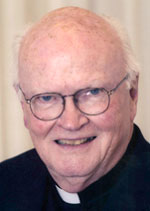Far into the indefinite future, just to mention the name of the city of Detroit will be to raise the question of urban bankruptcy and how to avoid it.
Everyone saw it coming. Many tried to help, but nothing could prevent the hammer from dropping on the Motor City on July 19, 2013. Now with protection from creditors, Detroit — and that means all the people of the city of Detroit — has to figure out a workable rebound strategy.
Some will continue to check out, saying “not my problem; good luck.” Others will simply hope for the best. But some will have to face reality, generate job-producing ideas, raise the capital to embody those ideas in corporate form and work in tandem with responsible union leadership and public officials to build a new city for a new era of prosperity and protection of the common good.
Not all that long ago, Pittsburgh faced similar challenges. Their universities, Carnegie Mellon University with expertise in robotics, and their health care institutions, notably the University of Pittsburgh Medical Center, offered services that generated jobs to help turn around the economy.
It would be great if Detroit’s institutions of higher learning could convene “idea fairs” to bring creative minds into contact with one another and encourage “what if?” and “why not?” conversations focused on identifying possible new goods and services to meet present and future market demand. All that the universities would have to provide is comfortable chairs, coffee, notepads, whiteboards and the presence of a few investment bankers and venture capitalists to listen in on the conversation. If the cold, glassy eyes of investors see potential profit in a given idea, the needed capital will begin to flow.
Ideas surely have consequences. Detroit needs fresh ideas right now. If the institutions of higher education are incapable of assembling the “thunder thinkers” who can produce a few good ideas, you have to wonder how those universities continue to justify their existence.
Meanwhile, the little people have something to contribute. I’m told that there are “gardening angels” at work in Detroit converting the empty lots that once supported houses into urban gardens. Just a few seeds, some sprinkling and the turning of soil can make that happen. Inner-city churches can encourage this. They can also cooperate with city officials in persuading citizens to turn in their handguns. The churches can do a much better job of spreading the social gospel and getting out the word that there is an obligation on all the people to promote and protect the common good.
Detroit is capable, as a community, of reaching new heights of interracial justice and local government integrity. The city has learned the hard way that economic dependence on one industry is not wise. It has yet to learn how productive a community-wide commitment to honesty, integrity, creativity and genuine love of neighbor can be.
And it would be great for the local economy, not to mention the sagging spirits of the citizens, if the Detroit Tigers soon fought their way into another World Series.
***
Jesuit Father Byron is university professor of business and society at St. Joseph’s University in Philadelphia. Email: wbyron@sju.edu



Share this story